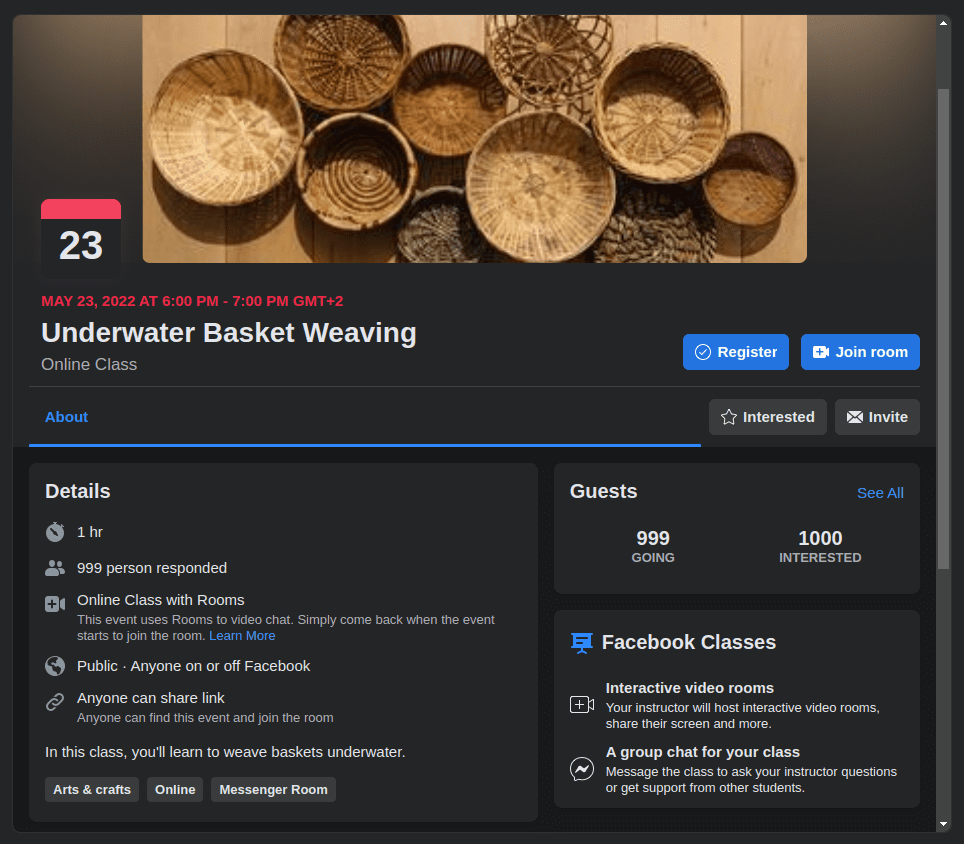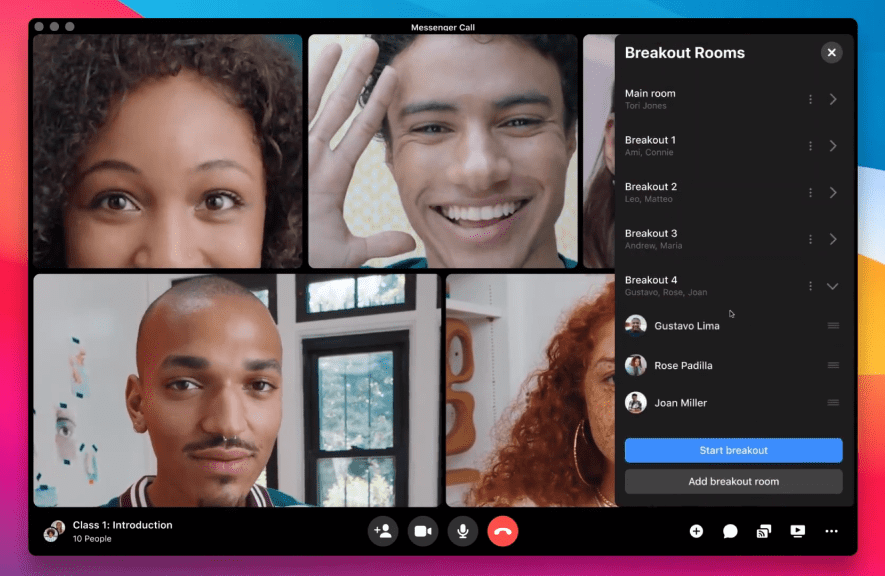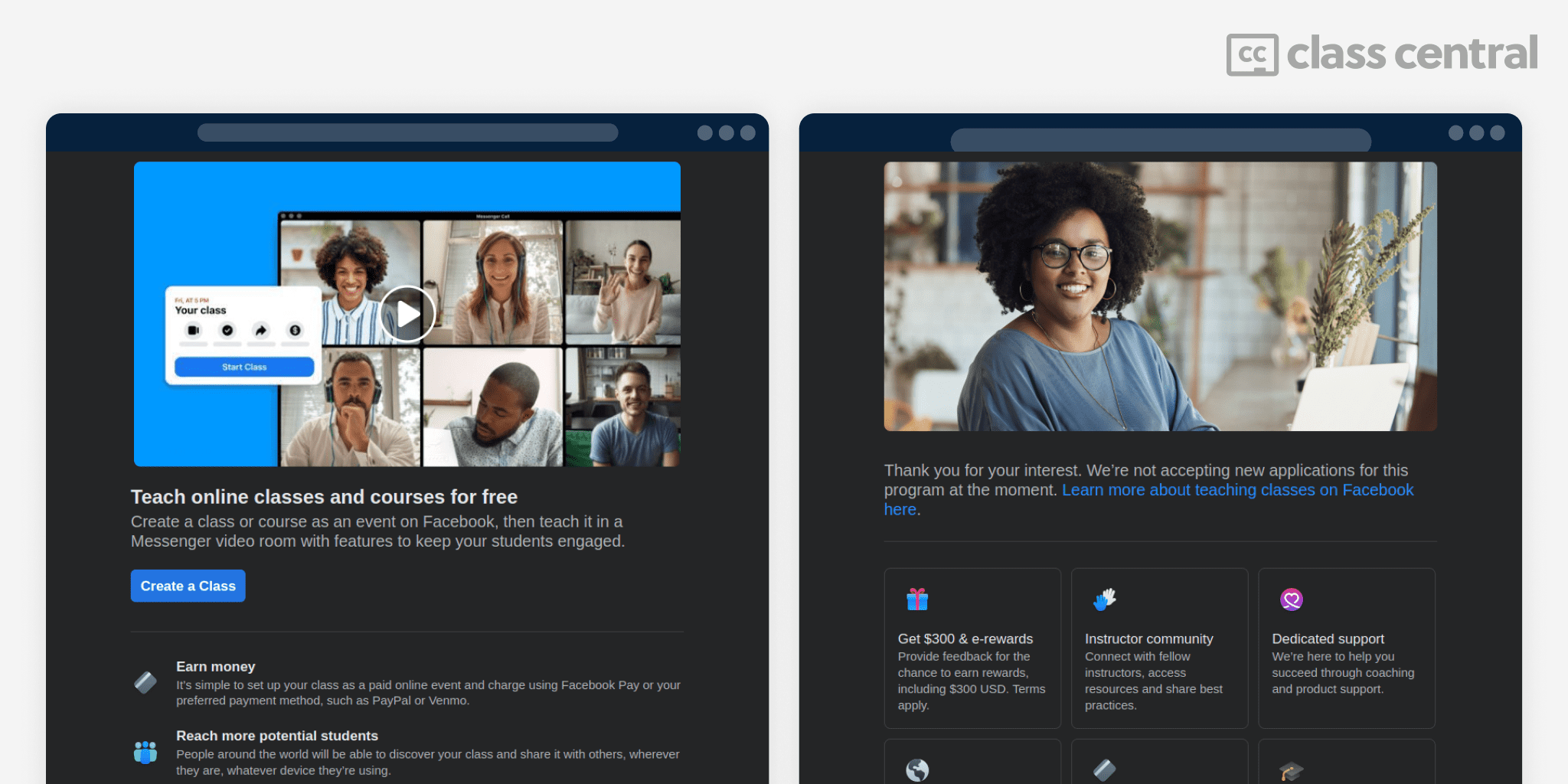Facebook Working on a Udemy Competitor?
Facebook lets users offer online courses. Here’s what we know about Facebook’s foray into online education.
Earlier this month, I got an email from Facebook offering $300 “for teaching your classes on Facebook.” I’m not sure why Facebook thinks I teach classes. Here’s what the email said:
We’re looking for instructors like you to try our new tools for teaching classes on Facebook. Apply now for your chance to test and give feedback on features designed to help you reach more students and make money teaching engaging classes.
Facebook is experimenting with letting individuals offer courses through their platform, much like Udemy does, and by contrast with platforms like Coursera and edX, which only host courses from partner universities and companies.
Here’s what we know at Class Central about Facebook’s foray into online education.
Previous Experiment
Though this email was the first we heard about Facebook’s online education experiment, while doing research for this article, we came across a Tweet from January 2021 explaining that Facebook had started trialing a new type of event in the UK called Facebook Classes, allowing users to live stream courses.
The pandemic brought about a renewed interest in online education, and in January 2021, many countries including the US and UK were well into the second wave of the pandemic, so Facebook might have seen it as a good time to jump on the bandwagon and test the waters with their own online education solution.
New! Facebook Classes for Events
‘Classes’ is new event type which can be selected when creating a new online event on Facebook.
It aims to make it easier to instruct and discover a class on Facebook pic.twitter.com/L0BvBuTXkM
— Matt Navarra (@MattNavarra) January 21, 2021
But at the time, the experiment was limited to the UK and boiled down to putting a new spin on existing Facebook streams. Now, the experiment encompasses larger markets — the US and Canada; it includes features ready-made for teaching online; and it even involves monetary incentives for offering courses.
New Experiment
Facebook has reached out to potential instructors, ranging from enthusiasts to experts. They may be using the data they’ve amassed about their users to target those somehow involved in education. That could explain why I got their email.
The new initiative is a beta program of sorts. Users are invited to apply to be able to:
- Offer courses on Facebook, including paid ones, from crafts to fitness to academic topics.
- Earn rewards, including $300 and various e-gifts cards.
- Access a dedicated instructors community.
Regarding the $300 reward, while alluring, the incentive involves jumping through some hoops: to earn it, you’ll have to teach 4 courses with at least 3 learners in attendance, and the courses must be paid.
The new initiative also comes with conditions. To join or remain in the program, users are required to:
- Be based in the US or Canada (excluding Quebec) and be at least 18 years old.
- Share feedback about Facebook’s online learning toolset.
- For now, only offer courses in English.
Despite the fine print, Facebook’s experiment seems to have found its audience: applications are already closed, seemingly because they’ve reached the 5000-instructors target mentioned in the program’s terms.
Facebook Learning Experience

Regarding their online learning experience, Facebook isn’t reinventing the wheel. In short, Facebook Classes is a patchwork of various Facebook services, outfitted with functionality tailored for teaching courses online. For instance, Facebook Classes integrate:
- Events: Classes are a subtype of event that one can create via Facebook Events. These serve as landing pages for courses.
- Live: Classes are streamed via Facebook Live, which was integrated into Facebook Events, and later updated in the wake of the pandemic to allow for paid events.
- Messenger: Classes have a dedicated chat underpinned by Facebook Messenger. This is the main avenue for asynchronous communication between instructors and their learners.

As for the features ready-made for online learning, Facebook Classes include:
- Breakout rooms: These allow to split learners into separate groups during live streams, so they can talk to each other — for instance, in the context of learning activities.
- Annotations: Instructors can share their screen, a presentation, or a whiteboard, and highlight and annotate them.
- Interactions: Instructors can create polls to gauge learner opinions and set timers to keep activities on track. And learners can raise their virtual hand to draw the instructor’s attention.
For anyone used to online learning and teleconferencing tools, none of this is particularly novel. For instance, Zoom has all these features, and more. In that sense, Facebook is simply playing catch up.
Udemy Competitor?
| Udemy | ||
| Users | 2.94B | 49M |
| Market Cap | 523B | 1.73B |
| Instructors | 2700 (source) | 64,000 |
| Courses | NA | 185,000 |
At a glance, it can be tempting to pit Facebook Classes against Udemy, since they have in common a distinctive aspect: they both allow virtually anyone to create courses, and not just handpicked academic institutions and companies, like Coursera or edX do.
But looking closer, there are also fundamental differences between the Facebook and Udemy approach:
For one, Facebook Classes are first and foremost live events. While the Facebook documentation mentions that recordings may be available under certain conditions, it’s understood most learners will take part in these classes live. By contrast, Udemy is a catalog of on-demand online courses.
In addition, while Facebook’s initiative includes an incentives program to bring creators on board, it remains a timid experiment. As mentioned earlier, Facebook Classes were first trialed in the UK in early 2021. It took Facebook more than a year to take a new tentative step, this time in the US and Canada.
And even then, the new initiative is capped at 5000 instructors. And it seems only 2700 actually joined the program’s invite-only instructor community. So how many will actually end up offering a course, especially considering the fine print for earning rewards? Even if all instructors were to offer one, what are 5000 live (read: ephemeral) courses compared to Udemy’s 185K course catalog?
With its over $500B market cap despite the current tech stocks sell-off, Facebook has the means to bootstrap an online course ecosystem. And with its nearly 3B users, it can ensure those courses find their audience. But it appears they’re not ready for that type of commitment. Udemy needn’t worry quite yet.
Tags







